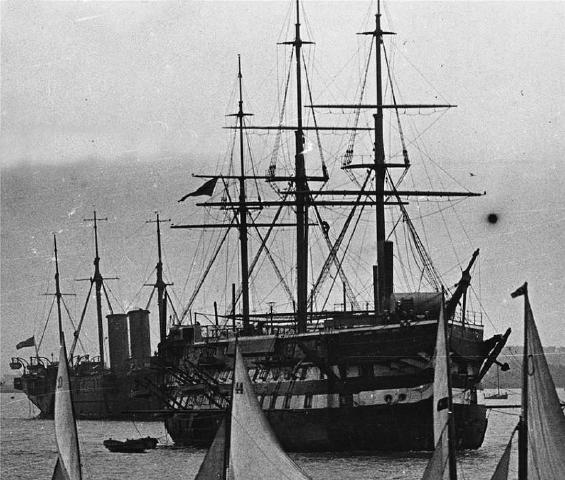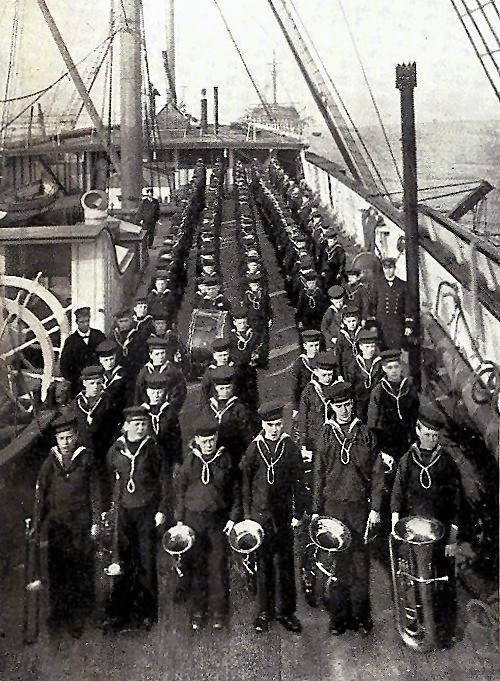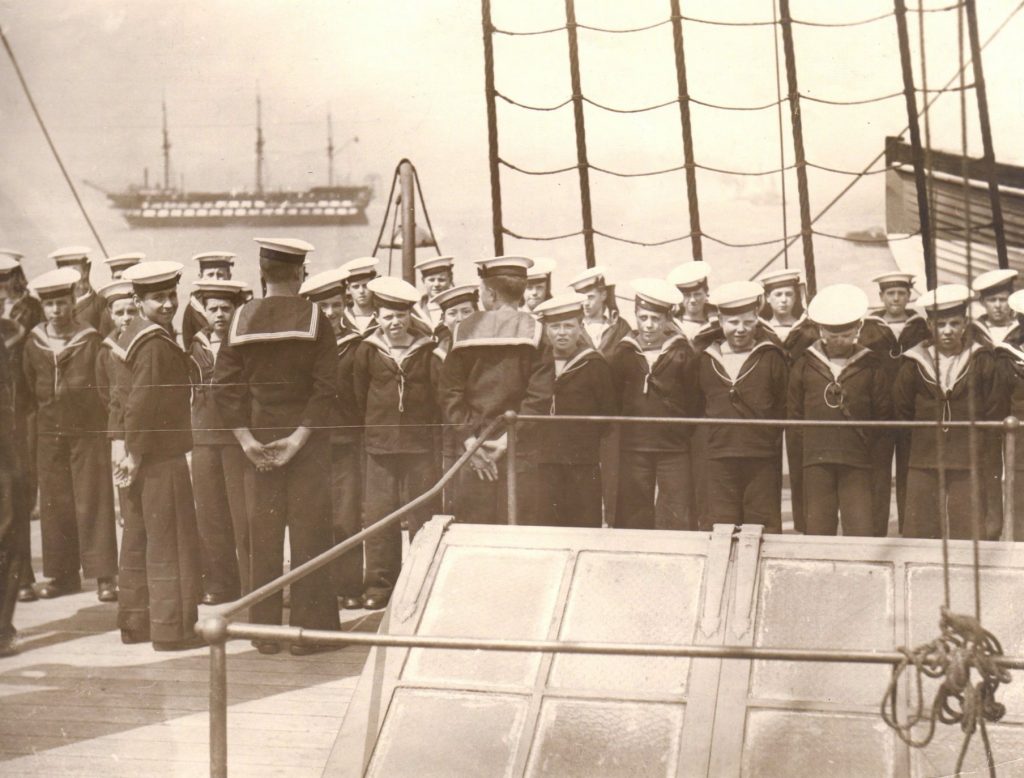Archive for May, 2020
Training Ships on the Mersey

The Akbar and The Clarence were both reformatory ships for boys who had been in trouble with the law. HMS Conway trained boys from better off backgrounds to be officers in the Merchant Navy whilst the Training Ship Indefatigable was for poor and orphaned boys whose fathers were seamen. These ships made a valuable contribution to the life of the port of Liverpool. They helped boys from difficult social backgrounds to gain the skills necessary for a life at sea. The schools closed as demand for merchant seamen declined after the Second World War.
Two schools were established in Liverpool, HMS Conway, to prepare boys to go to sea as apprentice officers, and TS Indefatigable to prepare boys for life at sea as a member of the deck crew.
In 1863 captain John Clint, a Liverpool shipowner, proposed the idea that a sea training school should be established for the orphans and sons of Liverpool seamen. Clint had helped found the Liverpool Shipowners’ Association in 1839, the Pilots’ Commission, the Dock and Harbour Company, the Liverpool Sailors’ Home, the Northern Hospital, but most importantly Clint had been the prime mover in establishing HMS Conway and the Akbar, a reformatory school for boys.
In 1864 the Admiralty agreed to loan HMS Indefatigable, a fifty–gun sailing ship frigate, launched in 1848, and retired from active service in 1857 to the Indefatigable committee. Mr. James Bibby contributed £5,000 to convert HMS Indefatigable into a training ship, and this became the beginning of a long relationship between the Bibby family and TS Indefatigable, which continues today with Sir Michael Bibby as President of the Indefatigable Old Boys Association. The Indefatigable was moored off Rock Ferry on the River Mersey alongside HMS Conway, Akbar and Clarence, both reformatory ships. The first boys to join the Indefatigable did so on the 28th August 1865.
The original Indefatigable remained off Rock Ferry until 1912 when it was deemed unfit for use. In 1913, the Admiralty agreed to sell HMS Phaeton to the Indefatigable committee for £15,000. Mr. Frank Bibby gave the Indefatigable committee the money to buy the Phaeton and re-fit her as a training ship. The Phaeton was renamed the Indefatigable and moored off Rock Ferry on January 15, 1914, at which time the figurehead of William IV was transferred from the old Indefatigable to the new Indefatigable.
From quarantine to borstal, ships in the Mersey hide stories of misery, sickness and brutality
In the 1830s the Akbar (right) was moored off Rock Ferry as a quarantine ship for cases of bubonic plague, cholera, typhus and smallpox.
In 1856 it became a floating borstal for Protestant boys aged 11-15 (the Clarence became a Catholic borstal a few years later). The Recorder of Liverpool reported in 1866, “The two Reformatory ships have succeeded to a very large extent in clearing the town of juvenile crime”.
Conditions on these ships were extreme. In winter the boys suffered from chilblains, tuberculosis, pneumonia and asthma.
Horrendous accidents have been described in the old Minute Books of the Akbar: One boy “while employed in blacking a portion of the rigging was accidentally jerked off and thrown down from a height of 16 feet on to the deck, dying three hours later…” Another “fell from the main top deck and received concussion and partial jaw fracture, was recovering ..” Yet another “while manning the working boat, slipped and was crushed between the boat and the ship side. His body was washed up on shore …”
Physical punishment included birching and caning. In August 1872, one lad was so worried about this that one night he clambered down to the bottom of the accommodation ladder to wash out his blanket before official inspection. He overbalanced and fell into the Mersey. His body was never found.
The Akbar moved to land and became Heswall Reformatory School on 2 December 1907. But the ill treatment continued. John Bull magazine exposed this in 1910 with the headline: “Reformatory School Horrors – How Boys at the “Akbar” School are Tortured – Several Deaths”. Winston Churchill assured Parliament that there was “no proof whatever” they were being mistreated. Nevertheless he set up an investigation into the incidents.
Boys had been gagged before birching, sick boys caned for malingering. No less than 27 had permanent scars from beatings. Others had been made to stand all night as a collective punishment. There had been four deaths in 1909: a boy called Brooks, who was going to be caned on the day he died, even though he was ill. Brown was drenched with water and died twenty minutes later. Mills just collapsed and died. Yeadon was, “a weakly boy – probably a boy of degenerate type, utterly unfit for sea-life or ordinary industrial training.”
Despite all the criticisms the inquiry did not recommend any changes, although the Chief Officer resigned. John Bull reported reprisals against boys who had given evidence.
1.Between 1824 and 1863 there were at least ten quarantine hulks moored off Rock Ferry – at one stage six were there simultaneously.
2.There were actually four ships off Rock Ferry. The other two were The Conway (1859) used for the training of officers in the Merchant Navy, and The Indefatigable (1865), a school for destitute and orphan boys from Liverpool.

Indefatigable Old Boys Association (IOBA)
© www.indeoba.com 2020
Aboard Indefatigable 1927
Courtesy of: Geoff Stephens is at River Mersey.

Indefatigable (ex Phaeton) Cadets awaiting onboard for the inspection by Admiral Sir Lewis Clinton-Baker 1927
Indefatigable Old Boys Association (IOBA)
© www.indeoba.com 2020